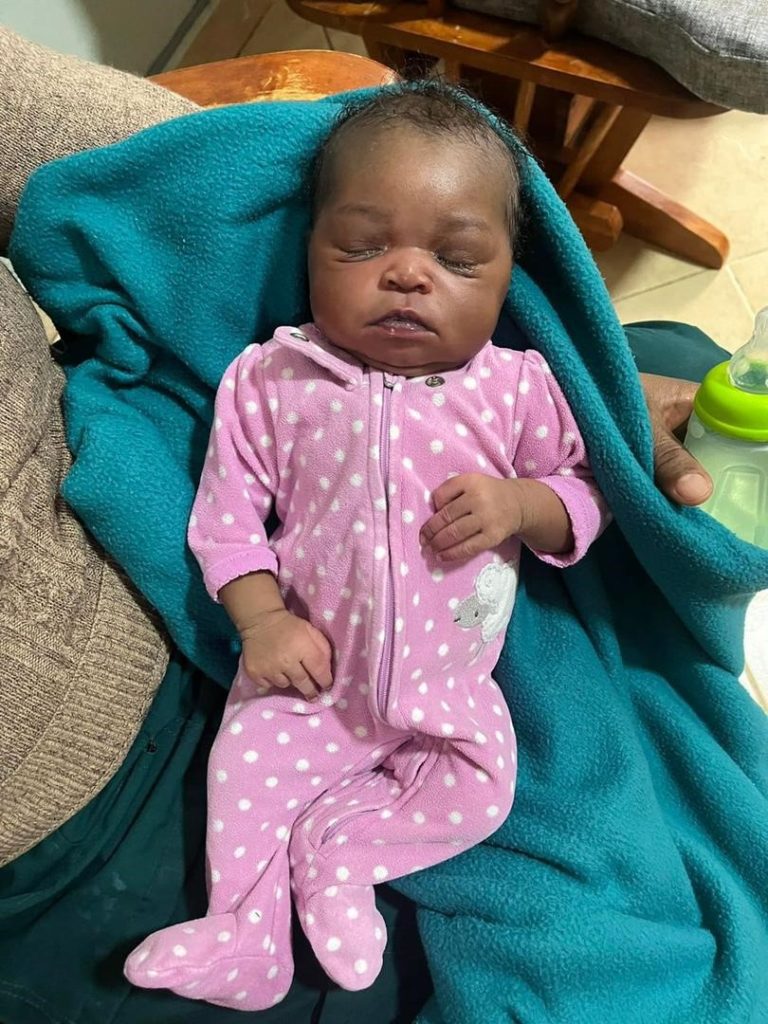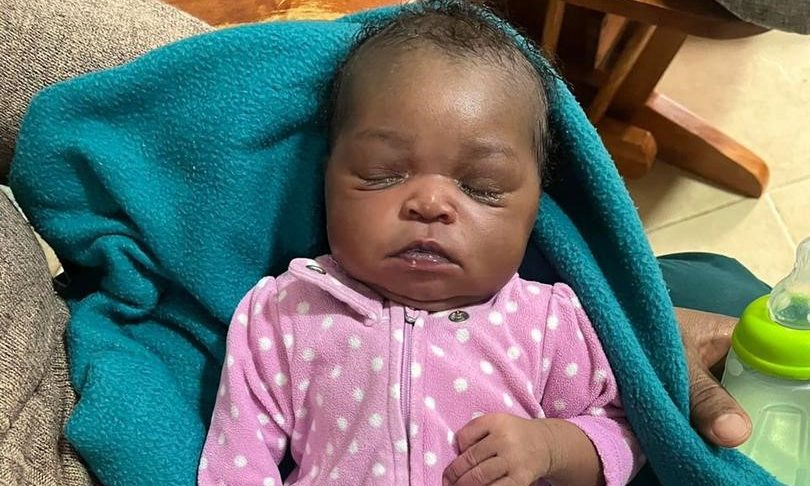Recently, I received a call from a local social worker about a mother who had died in childbirth. He asked if we could help because the father was unable to care for the baby. As we aren’t equipped to care for infants, I called Neema Village and they agreed to take her. Neema Village is a baby home that we have worked with before, and is also caring for the baby sister of MGRC girls Naini and Suzana.
I told the social worker that we would cover the costs of the father bringing the baby to us and that we would get her to Neema house. But after several days he still hadn’t shown up. This didn’t surprise me, as situations like this have happened before where someone else is found to take care of the child. And my experience has been that the Maasai people view children much differently than we do in the west.
However, after 5 days I received another call that they were on their way. By the time they got to us, the baby had barely eaten for 7 days. We found them at the bus station and immediately took the baby to the best hospital in the area. Her blood sugar level was dangerously low, and she was likely near death, but they were able to revive her. We brought her back to MGRC, where our nurses cared for her.

My many experiences while living here had led me to make assumptions about the situation. But the reality was that this father only had one wife (usually there are several wives who can help care for the baby), for whom he had to arrange a funeral, and six children to care for on his own. In addition, he was trying to borrow money to make the trip.
It’s hard for us to imagine, but the safety nets that we take for granted in the west simply don’t exist here. The Maasai live in far out, remote areas without means of communication. The social worker who called us about the baby just happened to live in the area and heard about the situation. We had no way of contacting the family or know where to go pick them up ourselves.
Though exact statistics don’t exist, a very large number of Maasai women die in childbirth. And while I am grateful we were able to save this baby, how many others die that we never even hear about? This is why it is so important to me that we give our girls the education that many of the Maasai never receive.
This situation can serve as a powerful lesson for the older MGRC girls. We now have two nurses on staff, who are educating our girls about their bodies. They are learning about prenatal and postpartum care so they can take care of themselves someday. I also believe that educating our girls will empower them to go back into their families and communities and share what they have learned. And, in time, this will lead less women dying in childbirth.
For now, baby Nosim is safe at Neema village. She may return to us when she is old enough. But what I know for sure is that God created her for a purpose, and that He brought her to us for a purpose. And I pray that this experience will lead to many more lives being saved.

Comment(1)-
-
Seeds of Change: Celebrating Progress & Looking Ahead
-
Christmas in Tanzania: Celebrating Hope and Empowering Young Maasai Women
-
Investing in the Future: The Larson Foundation’s Impact on MGRC
-
Our model is working: Witnessing transformation at Maasai Girls Rescue Center
-
Preserving tradition: Welcoming our new Maasai Cultural Guide


Sharon Berg says
June 8, 2024 at 1:34 pmPrecious in the eyes of God!
Recent Posts
Our Promise
When you give, 100% of every dollar goes directly to the care of the girls.
Volunteer. Donate. Review.